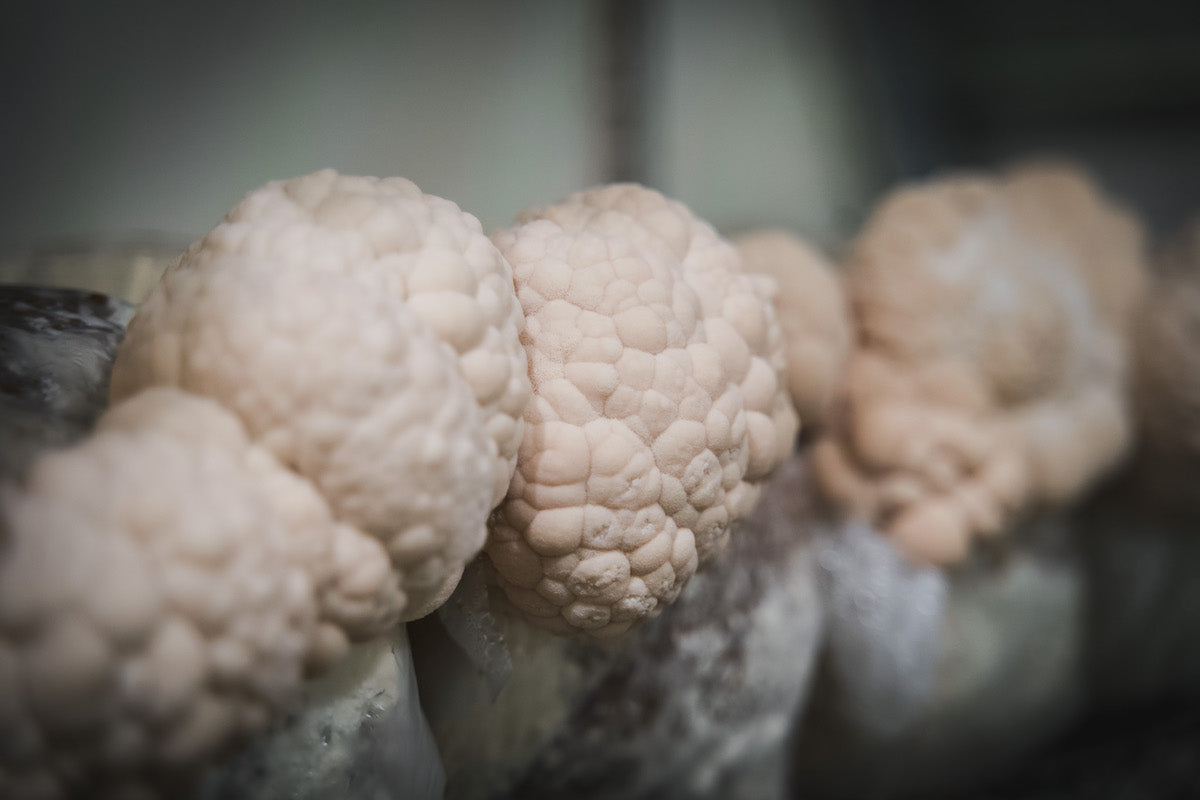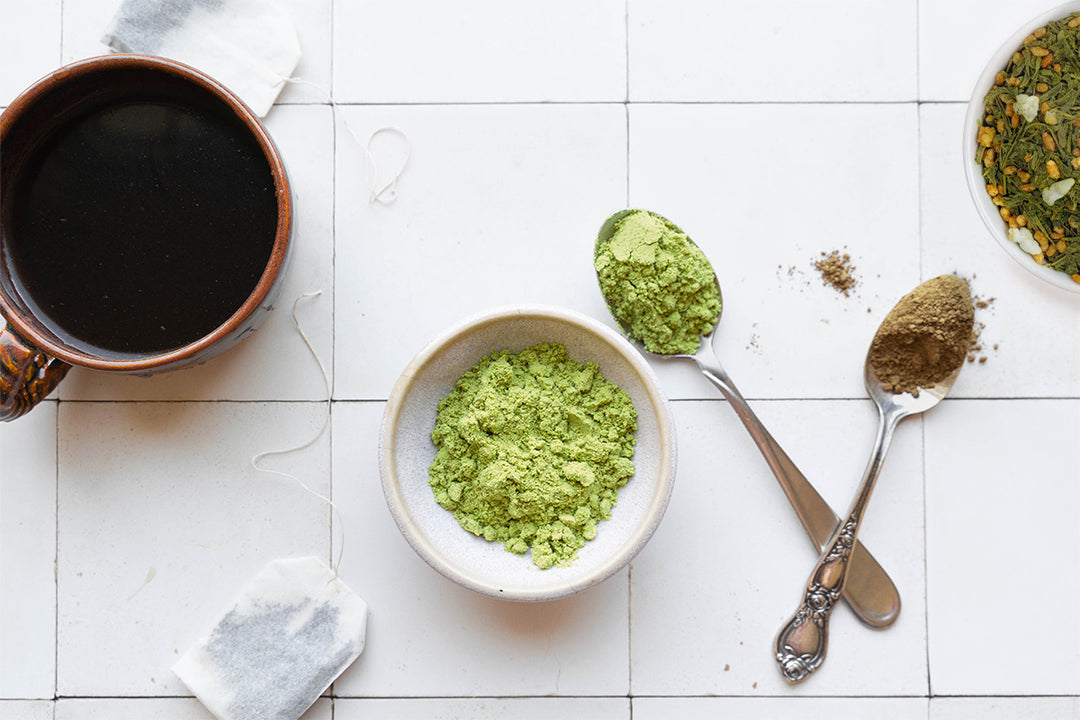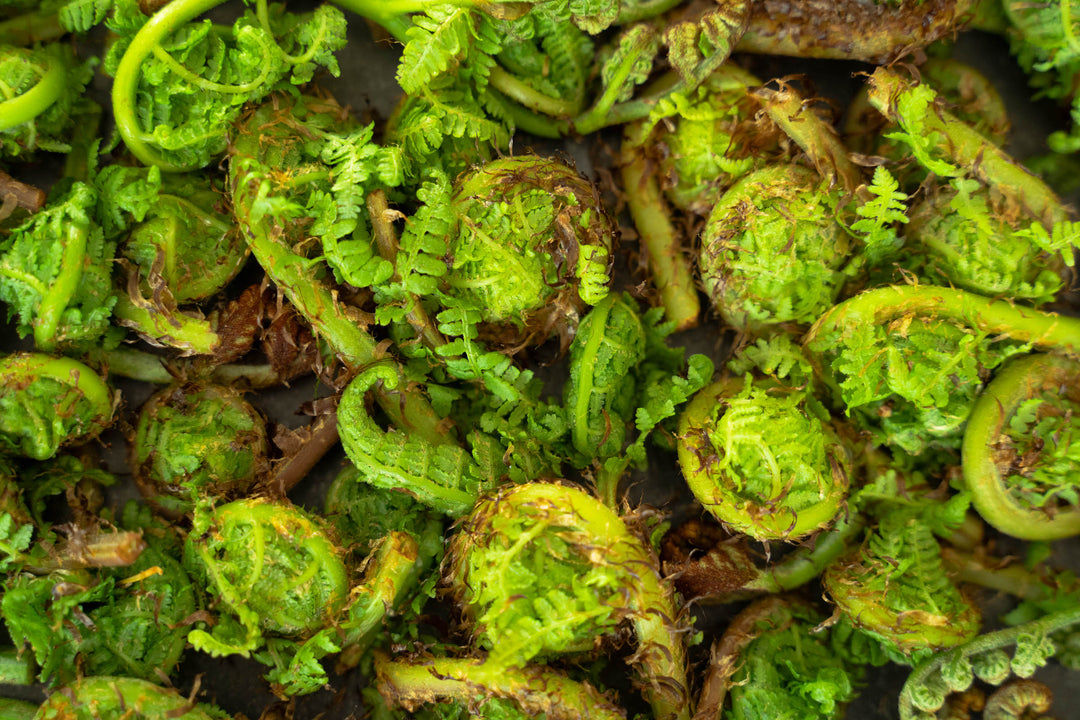What’s So Special About Lion's Mane Mushrooms?

In the awe-inspiring world of medicinal mushrooms, one of the most fascinating is the Lion's Mane mushroom, or Hericium erinaceus, if you prefer fancy latin words. Both Hericium and erinaceus translated mean "hedgehog”, which is another common name for this mushroom, which is fitting because of its physical appearance.
Lion’s Mane is quite unique as it’s a tooth fungus. This means instead of having gills like most mushrooms, it has hanging spines or shaggy tendrils that somewhat resemble icicles (or a lion’s mane, or yes, even a hedgehog). The mushroom is renowned for this unique appearance as well as its culinary applications; it has a mild sweet flavor that is slightly reminiscent of seafood and a very pleasing delicate but firm texture.
This remarkable fungus has also gained a bit of fame for its many potential health benefits, especially when it comes to brain health and cognitive function.
In this article, we dive into some of these captivating medicinal properties and explore its extraordinary potential impacts on the brain and general well-being.

Nerve Growth Factor (NGF) Stimulation
One of the most extraordinary features of the Lion's Mane mushroom is its ability to stimulate the production of Nerve Growth Factor (NGF) in the brain. Simply put, NGF is a protein that plays a vital role in the growth, maintenance, and regeneration of nerve cells (neurons).
Research has shown that the bioactive compounds found in Lion's Mane, specifically hericenones and erinacines, can cross the blood-brain barrier and help to trigger the production of NGF. This phenomenon has the potential to support nerve cell health and promote optimal brain function. The potential applications here are very exciting!
Enhanced Cognitive Function
With this ability to promote NGF production, Lion's Mane mushroom may hold some promise for helping to enhance overall cognition. Some studies have suggested that regular consumption of Lion's Mane may actually lead to improvements in memory, learning, and concentration.
This makes it an increasingly appealing option for individuals seeking natural ways to enhance brain health. Lion’s Mane supplements are rapidly becoming very common in everyday nutrition.
Neuroprotective Properties
Neurological disorders, such as Alzheimer's, dementia, and Parkinson's diseases, are often characterized by the gradual decay of nerve cells in the brain. The Lion's Mane mushroom's neuroprotective properties may offer potential benefits in mitigating the impact of such disorders, and research on this topic has increased significantly in recent years.
Lion’s Mane might actually help in reducing inflammation in the brain brought on by the buildup of amyloid plaque, thought to be at the root of Alzheimer’s. Its ability to help regulate dopamine levels by way of its active compounds also shows promise to help fight against the devastating effects of Parkinson's.
By encouraging nerve cell growth and protecting them from damage, Lion's Mane could potentially help slow down the progression of a wide range of neurodegenerative conditions, but a lot more research is needed in this area.
Mood Regulation
Beyond cognitive enhancement, Lion's Mane may also help to play a role in mood regulation. Early findings have indicated that the mushroom may in fact positively influence mood and help alleviate symptoms of anxiety and depression.
The mechanisms thought to be responsible here include promotion of gut health, stimulation of NGF production, neurotransmitter modulation, and lowered activity of the HPA axis (the body’s primary stress response system).
While the exact science is not yet fully understood, the potential benefits of promoting overall emotional well-being are very exciting and clinical applications might not be far off.
Nervous System Support
The nervous system is a complex network that connects every part of the body to the brain.
Lion's Mane may actually be able to stimulate nerve cell growth throughout the body and even aid in nerve repair. This function may prove to have broad implications for overall nervous system support.
By promoting healthy nerve function, this mushroom could actually contribute to better neural communication, improving overall health and possibly staving off certain diseases.
Gastrointestinal Health
Surprisingly, Lion's Mane also appears to have benefits for gastrointestinal health. It contains bioactive compounds that may help to promote and maintain a healthy gut lining, thus supporting the growth of beneficial gut bacteria and an overall healthy gut biome.
A balanced gut microbiome is essential for overall health, and Lion's Mane's positive influence on your gut health further highlights its potential as a comprehensive wellness aid.
Where to find Lion’s Mane Mushroom
In the wild, Lion's Mane mushrooms can be found growing on dead or dying hardwood trees, such as oak, maple, beech, and walnut. It is a saprophyte and has a crucial environmental role as a decomposer of organic material.
As these mushrooms break down decaying wood, they assist in the recycling of nutrients and contribute to forest health. They are often spotted in the temperate forests of North America, Europe, and Asia.
Remember, if you ever encounter wild mushrooms, including Lion's Mane, it's crucial to exercise caution and not consume them unless you are an experienced forager. Some wild mushrooms can be extremely toxic. Always consult with a mycologist or expert before attempting to identify and consume wild mushrooms.
Lion's Mane mushrooms also respond well to cultivation and can be grown on a variety of substrates, such as sawdust, logs, or straw. This adaptability has contributed to its popularity among both enthusiasts and commercial growers. There are some great companies to buy grow kits from, which can be a very fun way to get to know this amazing mushroom.
Additionally, the Lion’s Mane mushroom can be found in a variety of products from supplement powders, tinctures, and of course mushroom coffee to help you get your fix.

Lion’s Mane, Your Brain’s New BFF
The Lion's Mane mushroom stands out as a captivating and impressive member of the fungal kingdom. Its unique ability to stimulate Nerve Growth Factor production and support nerve cell growth sets it apart as a potentially powerful medicine and ally for the brain.
While research on Lion's Mane is still ongoing, the initial findings are remarkably promising.
Incorporating Lion's Mane mushroom into your health plan, either through supplements, coffee, or traditional culinary uses, can offer a natural way to support brain health, enhance cognitive function, and potentially protect against some neurological disorders*.
*It’s essential to approach any supplementation with caution; always consult a healthcare professional, especially if you have existing health conditions or are on medication.



I’ve always enjoyed mushrooms for their taste, but learning about their health benefits—like boosting immunity, improving gut health , and even fighting inflammation—makes me appreciate them even more. It’s incredible how versatile and powerful these little fungi are!
I’ve been reading about their ability to help the body adapt to stress and boost , overall well-being, and I’m intrigued by how these natural remedies can make such a difference. It’s amazing how nature has solutions for modern-day challenges.
Leave a comment